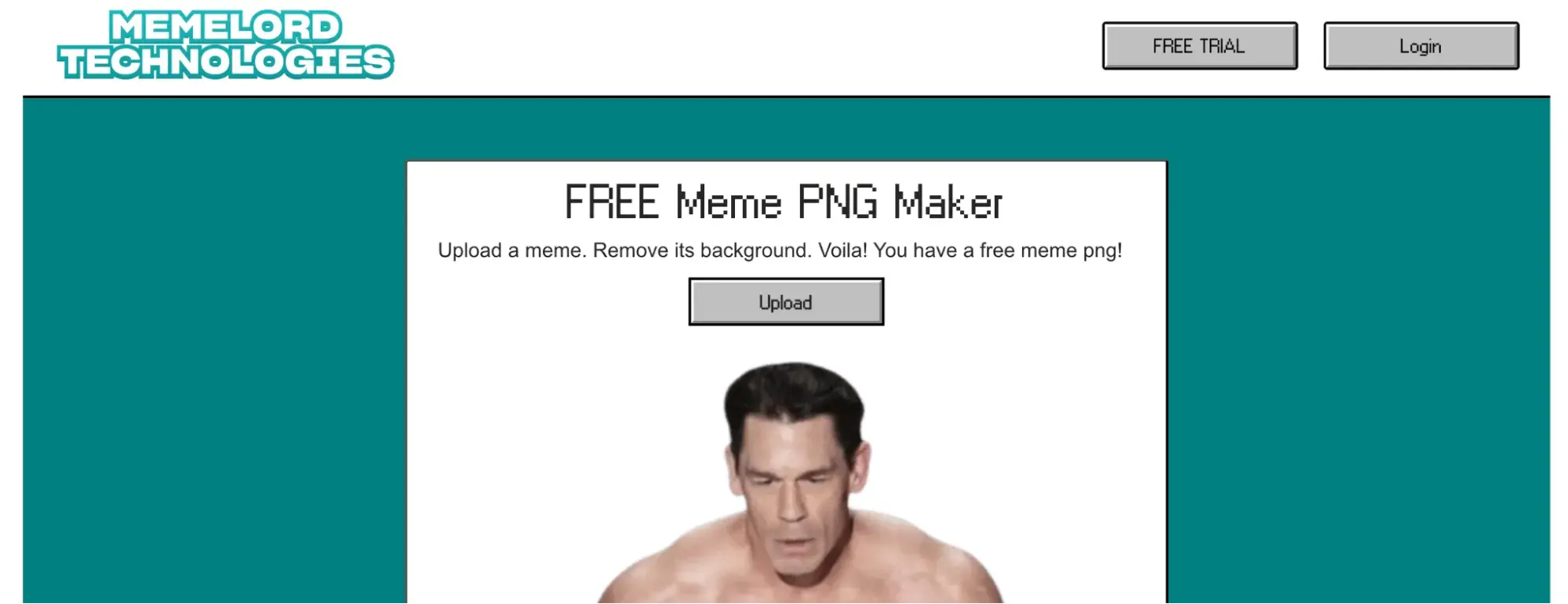As Wiz’s Head of Marketing Tom Orbach says, “Mini tools are 10x more powerful than free trials.”
For the last 20 years, tech marketers have been giving away e-books and PDFs. I think Orbach would agree that this era is coming to an end.
Thanks to AI, no-code, and outsourcing, the smartest tech marketers are now giving away mini software tools … entirely for free.
This is something I like to call ‘free tool marketing.’
Here’s how it works.
What is free tool marketing?
In MBA speak, free tools are referred to as ‘loss leaders.’ A loss leader is a free-ish mini product that gets customers to buy a bigger product.
For a perfume company, it might be a free sample of perfume at the mall. For my hometown gas station, Wawa, it was free coffee every Tuesday in 2024. Now, in tech, the norm is to give away free tools to get you in the door for paid ones.
But how do you figure out which mini tool(s) to build?
There are two main ways:
1. Look for low-difficulty, high-volume keywords.
The goal here is to snag a little bit of traffic that may be interested in your paid software.
You’re not gonna rank for your niche’s main keyword overnight, but mini tools are like mini bets. Each mini tool gives you a better shot at ranking higher for your most important main keywords.
Use tools like Ahrefs to find keywords that are low-difficulty keywords with a KD around 0-5 with as high volume as possible. Even as low as 1,000 searches/month is good to start.
For example, the keyword ‘social media manager jobs‘ has a keyword difficulty of 0 and 7,200 searches per month. If you’re an AI resume writing tool or a hiring platform like Indeed, you could spin up a free AI resume writing tool specifically for social media managers looking for jobs.
Here’s another example: The keyword ‘Instagram giveaway template’ has a keyword difficulty of 5 and 500 searches per month.
If you’re an image creation platform like Canva or an ad agency that helps brands do Instagram giveaways, you could create a free AI Instagram giveaway template generator using something like OpenAI’s DALL-E model or Midjourney.
2. Look within your product for features that could be free tools.
Do you have any existing features that could be free tools?
For example, if you’re a personal finance app, maybe it’s a compound interest calculator. Or if you’re a video editing software, maybe it’s a free video resizer. The options are endless.
Pro tip: Obviously, don’t give away all your software’s secret sauce. But most times, you’ll be able to find at least one feature to offer at no cost.
What This Looks Like in Practice
Let’s use me as an example.
I run a meme marketing software called Memelord Technologies.
Late one night, I couldn’t sleep. So, I did some deep digging for keywords on Ahrefs and saw that the keyword ‘meme png’ was low-difficulty and high-volume (0 keyword difficulty and 4,000 searches per month!).
I already built an AI background removal tool for memes, so I took that feature and spun up a Free Meme PNG Maker It’s the exact same feature — just given away for free.
And sure, I’m paying a little bit of API fees every time someone uses the tool, but I’m already seeing signups from it for free (and with zero promotion!).

Here’s another personal example.
I also saw that the keyword ‘marketing memes’ was both low in keyword difficulty and relatively high in search volume (2 keyword difficulty and 1,200 searches/month).
So, what did I do? I created a tool for marketers to get inspiration for memes: a basic no-code, searchable, filterable gallery of marketing meme examples.
Like the meme PNG creator, I’m already seeing signups from this free tool using just straight SEO — no promotion required.
But I’m not the only example out there.
Newsletter platform Beehiiv launched a free LTV calculator to calculate the lifetime value of your subscribers. HubSpot has a free AI search grader that helps you evaluate your brand performance in AI search results. Wiz launched a free QR code generator.
And I have good news: You don’t need to be a VC-backed business or a big brand to build free tools.
How Marketers Can Get Started
I’m a bootstrapped scrappy founder building free tools, and I first learned about this marketing tactic when I was Head of Growth at Product Hunt.
I saw these crazy solo founders, and I realized you don’t need to have a million-dollar budget anymore to build free software. (In fact, it may even be easier for solo hackers and startups because there’s less oversight, little to no bureaucracy, and minimal need to prove definite ROI.)
Marc Lou is one such solo software founder and huge advocate of free tools.
“I am a developer, and I love building apps,” he explains. “But I also need marketing to pay the bills. Free tool marketing is symbiosis. It consists of launching free and viral mini-apps to promote your main startup.”
Lou recommends the following guidelines for the best results:
- The tool must be free — that’s how you create a viral loop.
- One feature is enough. It must be super simple.
- The name should tell exactly what the tool does. That’s how people remember and search on Google.
- The experience must start on the homepage. Visitors shouldn’t sign up or click links.
Matt Merrick is another solo hacker building free tools.
“Over the years, I’ve built over 100 free tools. And every time, I’m amazed by how well they perform,” Matt told me via DMs on X.
“The process is simple: I start with a keyword related to the site I’m working on (like ‘color’) and ask ChatGPT for free tool ideas around it. I only target low-competition, high-search-volume keywords to rank fast and drive traffic.
Free tools naturally attract views, backlinks, and domain authority. My site Niche Tools has 20+ free tools on it and is starting to rank bringing in free sales.”
Merrick dedicated his entire career to free tool marketing.
Why?
Because we are entering the era of free tool marketing.
Free e-books are so 2010s. The 2020s and beyond are all about free software.
So, let me ask you: What free tools can you build?
Think about it for a minute. Take a minute to look through your product for free feature ideas. Head over to Ahrefs’ keyword generator (another free tool) to optimize for search.
Then, grab a Red Bull, go build some free tools, and launch ‘em!
![]()

![Download Now: Free State of Marketing Report [Updated for 2024]](https://no-cache.hubspot.com/cta/default/53/db725f24-564c-483b-a28c-2d6ff9986516.png)







Last Comments